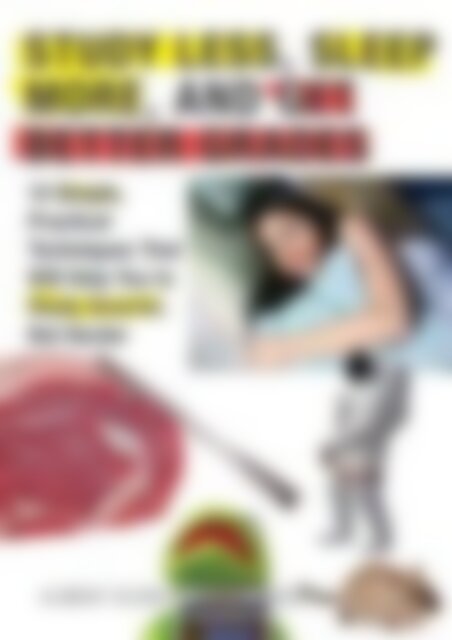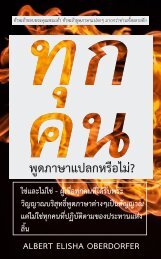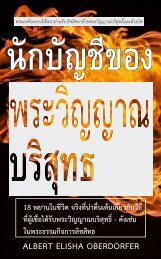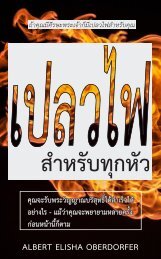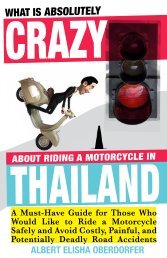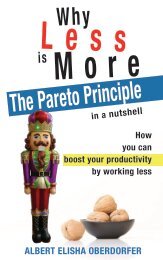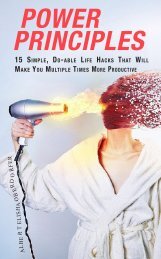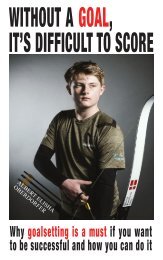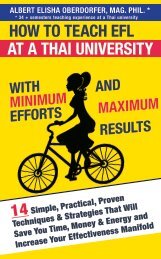STUDY LESS, SLEEP MORE, AND GET BETTER GRADES - ALBERT ELISHA OBERDORFER
As a student, are you trying to study hard but you can’t achieve the results that you want? Are you easily distracted and are wasting a lot of time on social media ? IT’S TIME STUDY LESS BUT GET BETTER GRADES! Apply some simple learning techniques that will help you to study smarter, not harder! For example : - How to deal with social media so that it doesn’t interfere with your learning, - How to create your own learning space, - How to focus on what is important, - How to make Parkison’s Law work for your advantage, - How adopt the change mindset, - How to adopt a birds-eye view, - How sleeping more can help you to get better grades, - How to plan your schedule wisely, etc. Apply 14 simple, practical techniques that will help you to study smarter, not harder.
As a student, are you trying to study hard but you can’t achieve the results that you want?
Are you easily distracted and are wasting a lot of time on social media ?
IT’S TIME STUDY LESS BUT GET BETTER GRADES!
Apply some simple learning techniques that will help you to study smarter, not harder!
For example :
- How to deal with social media so that it doesn’t interfere with your learning,
- How to create your own learning space,
- How to focus on what is important,
- How to make Parkison’s Law work for your advantage,
- How adopt the change mindset,
- How to adopt a birds-eye view,
- How sleeping more can help you to get better grades,
- How to plan your schedule wisely, etc.
Apply 14 simple, practical techniques that will help you to study smarter, not harder.
- No tags were found...
You also want an ePaper? Increase the reach of your titles
YUMPU automatically turns print PDFs into web optimized ePapers that Google loves.
<strong>STUDY</strong> <strong>LESS</strong>, <strong>SLEEP</strong><br />
<strong>MORE</strong>, <strong>AND</strong> <strong>GET</strong><br />
<strong>BETTER</strong> <strong>GRADES</strong><br />
14 Simple,<br />
Practical<br />
Techniques That<br />
Will Help You to<br />
Study Smarter,<br />
Not Harder<br />
<strong>ALBERT</strong> <strong>ELISHA</strong> <strong>OBERDORFER</strong><br />
1
2
DEAR STUDENTS<br />
I’m happy that you have come across this book<br />
because I believe that it will help you a lot.<br />
My name is Ajarn Albert.<br />
You can also call me Ajarn Elisha.<br />
I have a lot of teaching experience.<br />
I’ve been teaching part-time at the English<br />
Department of Chiang Mai University for<br />
over 15 years.<br />
This means that I have been teaching for over<br />
30 semesters.<br />
I have taught a lot of English classes and met<br />
many thousands of students.<br />
I love my students and really would like them<br />
to study well and have success in their student<br />
life and the future.<br />
This is my heart.<br />
I have written already two books for teachers<br />
about teaching methods and strategies that will<br />
help them to teach in a more effective studentcentered<br />
way.<br />
In short, to teach in a way that will benefit the<br />
students the most.<br />
But this book is for you—the students.<br />
3
4<br />
Hi there!
I will share in this book some tips and<br />
strategies that will help you a lot to study<br />
more effectively.<br />
Please enjoy reading, and I hope you will<br />
also put into practice what you are learning<br />
through this book.<br />
5
6
YOU NEED THE RIGHT<br />
TOOLS <strong>AND</strong> STRATEGIES<br />
Imagine that you wanted to cook, and you<br />
needed to cut up this piece of meat.<br />
But all you have is this breakfast knife.<br />
Would you be able to do it?<br />
Maybe.<br />
But would it take you long?<br />
Would it be awkward?<br />
Yes.<br />
7
8<br />
This will do the job properly.
But now imagine that you have the right tool.<br />
A very sharp kitchen knife.<br />
Then cutting the meat would be very easy for<br />
you.<br />
It is the same when you are studying at school.<br />
You need to have the right study tool and<br />
strategies so that you can study effectively.<br />
You don’t need to study hard.<br />
If you can study smart.<br />
If you have very effective study methods and<br />
tools.<br />
Then you will be able to study less and at the<br />
same time get better results.<br />
Study less.<br />
And get better grades.<br />
How does that sound?<br />
Good, right?<br />
I will share with you some useful techniques<br />
so you can become a brilliant student.<br />
By studying less.<br />
And getting better grades at the same time.<br />
9
10
A CONVERSATION AT A<br />
COFFEE SHOP.<br />
11
12
EXAM WEEK<br />
About two weeks ago, I went to one of the<br />
computer rooms of Chiang Mai university<br />
near the main library.<br />
I worked for a couple of hours, and then I went<br />
to grab a coffee in the Amazon coffee shop<br />
next door.<br />
As I entered the coffee shop, three students<br />
caught my attention.<br />
They were huddled together on a table: one<br />
girl and two boys. The girl was entirely<br />
coverred by her hoody—you could only see<br />
her fondling a mobile phone. One boy was<br />
reading a book (his phone was right next to<br />
the textbook). Aand another boy who was on<br />
his phone and the textbook lay on the table.<br />
The name of the game is to study<br />
more effectively—not harder.<br />
13
14<br />
“I can’t let you go.”
After I got my cafe Latte, I walked up to<br />
them and talked to them a bit.<br />
They were all preparing for an upcoming<br />
exam.<br />
I had just finished writing my other book,<br />
“How to teach EFL at a Thai university with<br />
Minumum Efforts but Maximum Results” .<br />
In this book I talk about how we need to be<br />
able to manage the way we use social media<br />
if we want to be effective in any way.<br />
All three of them were aware that the way<br />
they were preparing for the exam was not<br />
the best.<br />
When I suggested that they could turn their<br />
phones off while they were studying—or<br />
leave them at home —one boy fully admitted<br />
what he was completely addicted.<br />
He said,<br />
“No, I couldn’t do that.”<br />
Even as we were talking, he kept looking at<br />
his phone, and checking some updates.<br />
The other boy was agreeing with me.<br />
He said, “Yes, I will do this. Tomorrow.”<br />
The girl also was letting me know that she<br />
was fully aware that what she was doing<br />
had more to do with killing time than with<br />
studying.<br />
All these three students were ‘studying.’<br />
15
16
They were getting ready for an exam.<br />
But they were not doing it effectively.<br />
Maybe another student who was studying<br />
effectively for 2 hours in the morning, and<br />
then spend the whole afternoon playing<br />
football with his friends could do better than<br />
those students at the exam.<br />
So you need to learn how to study effectively.<br />
Not hard.<br />
But how to study smart.<br />
In this book I will share with you some<br />
simple but effetive study strategies.<br />
For example,<br />
- Learn to unhook from social media<br />
- Create your own learning space<br />
- Focus,<br />
- Use Parkinson’s Law<br />
And others.<br />
She is smart—she is turning it off.<br />
17
CONTENTS<br />
YOU NEED THE RIGHT TOOLS <strong>AND</strong> STRATEGIES 7<br />
A CONVERSATION AT A COFFEE SHOP.<br />
EXAM WEEK 13<br />
SIMPLE, PRACTICAL, STRATEGIES<br />
1 LEARN TO UNHOOK FROM SOCIAL MEDIA 27<br />
2 CREATE YOUR OWN LEARNING SPACE. 31<br />
3 FOCUS. 35<br />
4 FOCUS ON WHAT IS IMPORTANT. 37<br />
5 USE A NOTEBOOK. 41<br />
6 WRITE THINGS DOWN. 43<br />
7 LEARN TO SAY ‘NO’. 45<br />
7 FIRST THINGS FIRST. 47<br />
8 <strong>SLEEP</strong>. 51<br />
9 USE PARKINSON’S LAW. 55<br />
10 HAVE A GOOD RELATIONSHIP WITH YOUR<br />
TEACHER. 61<br />
11 ADOPT A CHANGE MINDSET. 63<br />
18
12 PLAN YOUR SCHEDULE WISELY. 67<br />
13 PRIORITIZE. 69<br />
14 ADOPT A BIRDSEYE VIEW. 73<br />
19
20
To study well,<br />
you need<br />
to learn to<br />
unhook from<br />
social media.<br />
21
22
So you can<br />
focus.<br />
23
Cracking these nuts can be fun<br />
and easy—if you have the right<br />
tool.<br />
24
SIMPLE, PRACTICAL,<br />
STRATEGIES<br />
25
26<br />
Unhook, first.
1 LEARN TO UNHOOK<br />
FROM SOCIAL MEDIA.<br />
TO BE ABLE to study effectively, you need<br />
to learn to control social media.<br />
And not let social media control you.<br />
Put the phone aside when you are studying.<br />
Completely.<br />
Put it in another room.<br />
Turn it off.<br />
So you can’t hear any notification sounds.<br />
Why is that?<br />
Every time you allow social media to break<br />
your focus, it is harder for you to get back to<br />
the same level of attention than before.<br />
I recently had a chat with my friend Daniel.<br />
Daniel is a Thai student who is, at this<br />
moment, doing a Ph.D. program.<br />
As part of the program, he has had to study<br />
in France last year for a few months.<br />
Daniel enjoys what he is doing, and he is a<br />
keen learner who understands the change<br />
mindset. (I will talk about this a bit later.)<br />
27
28<br />
This creature will bite you severely if you let it.
I had a chat with Daniel a few weeks ago<br />
around exam time.<br />
I was telling Daniel that I am writing this book<br />
for students, and I tell them to put social media<br />
aside when they are studying.<br />
Daniel was doing the same thing in his classes.<br />
He put his phone aside and focused on the<br />
teaching.<br />
So that when exam time came, he just needed<br />
to review his notes.<br />
He already knew what was essential for him<br />
to focus on because he had paid attention in<br />
class.<br />
That is key.<br />
If you put your phone aside and focus on<br />
learning in class, and take notes, then you will<br />
need to study less later.<br />
But those students who are constantly on their<br />
phones in class needed to study much harder<br />
later.<br />
And it was not so clear for them what they<br />
needed to focus on as well.<br />
So their grades were not so good.<br />
29
30<br />
This does it for him.
2 CREATE YOUR OWN<br />
LEARNING SPACE.<br />
WHEN YOU are studying, make sure that you<br />
do it somewhere where you are not distracted<br />
by anyone.<br />
Create your own learning space.<br />
Maybe you like to study in a library.<br />
Or at home.<br />
Make sure that you create an environment<br />
where other people cannot disturb you while<br />
you are studying.<br />
So that you can fully focus on what you are<br />
doing.<br />
Then you will be much more effective.<br />
You will need to study less.<br />
31
32<br />
This does it for her.
33
34<br />
She is good to go.
3 FOCUS.<br />
FULLY FOCUS on what you are doing.<br />
So when you are studying, fully focus on that.<br />
Don’t try to do many things at the same time.<br />
Like multi-tasking.<br />
Scientists are now saying that multi-tasking<br />
(doing many things at the same tine) is not so<br />
effective.<br />
You are more effective if you focus on one<br />
thing at a time, and do it with all your heart.<br />
35
36<br />
Luckily, the bull hasn’t figured out yet that he<br />
should focus on blue and not red.
4 FOCUS ON WHAT IS<br />
IMPORTANT.<br />
IT IS KEY that you focus, yes.<br />
But it is also critical that you focus on what is<br />
essential—on what is most important.<br />
For example, when you are preparing for an<br />
exam, make sure that you know exactly what<br />
the exam will be about.<br />
For example, in some courses, you may be<br />
tested on English vocabulary a lot.<br />
Then you should focus on learning vocabulary.<br />
Write down key vocabulary in a note-book and<br />
then make sure that you learn those words.<br />
(We will later talk about that it is better to use<br />
a physical note-book where you write things<br />
down by hand than just writing it in an i-pad.)<br />
You need to focus on your clear goals.<br />
So, find out first what it is that you need to<br />
study.<br />
Then you have a clear goal.<br />
There is a good story about rafting.<br />
A good rafting teacher will always teach<br />
people who are learning how to raft one<br />
37
38<br />
This way.
principle first.<br />
He will say,<br />
“When you are in the boat, I will always point<br />
to where I want the boat to go.”<br />
“Don’t worry about any rocks or sticks that<br />
you will see in the water.”<br />
“I will not point to these rocks or sticks, but I<br />
will always point to where I want the boat to<br />
go.”<br />
“So you need to paddle exactly int he direction<br />
I tell you, and not worry about the rocks or the<br />
sticks.”<br />
This is so important.<br />
In life, we need to have clear goals.<br />
Then we can focus on reaching our goals.<br />
We should not focus on what we don’t want<br />
to have.<br />
We need to focus on what we want to have.<br />
Then our chance to get it is higher.<br />
So when you are studying, you need to focus<br />
on what you want to achieve.<br />
39
Oh, no!<br />
Good!<br />
40
5 USE A NOTEBOOK.<br />
THERE is something about using a physical<br />
notebook.<br />
You can take notes on a laptop or iPod as well.<br />
Yes.<br />
But, it is more effective to use a physical<br />
notebook.<br />
We remember better when we are writing<br />
things down physically.<br />
Not just type.<br />
But write.<br />
(I will talk more about this in the next chapter.)<br />
41
42
6 WRITE THINGS DOWN.<br />
WHEN WE write things down with a pencil or<br />
pen, we remember things best.<br />
When we type a word on a phone, laptop or<br />
a computer, our brain does not need to work<br />
much.<br />
Because we are only pressing on letters.<br />
But when we write actual letters down on<br />
paper, then the brain has to work harder.<br />
So we will remember better.<br />
For example, the word ‘day.’<br />
If we type it, we just need to press on the letter<br />
‘d’ ‘a’ and ‘y.’<br />
But if we write the same word by hand, we<br />
need to create the letter d, a, and y<br />
For example, day.<br />
When we are writing something, the brain<br />
needs to work harder.<br />
That is why we remember better.<br />
That’s why I would like to suggest to you that<br />
you write things down in a physical note-book.<br />
43
Knowing how to say ‘no’ is as<br />
important as knowing how to<br />
say ‘yes.’<br />
44
7 LEARN TO SAY ‘NO’.<br />
THIS IS so important.<br />
To study well, you need to learn to say ‘no.’<br />
First, decide what your priorities are, and then<br />
you can learn to say ‘no’ to things that do not<br />
fit with your priorities.<br />
Learning to say ‘no’ is as important as learning<br />
to say ‘yes.’<br />
If you know what you clearly say ‘yes’ to, then<br />
you will also be better able to say ‘no’ to things<br />
that lie outside your focus.<br />
This does not mean that you should only do<br />
things that are entirely relevant to you.<br />
You can do other things, yes.<br />
But only if you have done the important things<br />
first.<br />
We will more talk about this in the next chapter,<br />
‘First things first.’<br />
45
46<br />
You have the most mental energy in the<br />
morning.
7 FIRST THINGS FIRST.<br />
YOU NEED to learn to prioritize.<br />
Do the most important things first.<br />
Don’t do other things yet that are less important,<br />
if you haven’t yet done what is most important.<br />
This sounds simple, right?<br />
But it is so important.<br />
Otherwise, you will run out of energy and time<br />
to do the things that matter much.<br />
That’s because our mental power is limited.<br />
It is full in the monring.<br />
And then as we go through the day and do<br />
things where we need to think, our mental<br />
power goes down.<br />
That is why it is so improtant that you don’t<br />
allow social media to steal energy from you.<br />
If you always look at social media, especially<br />
in the morning, it will steal mind power from<br />
you.<br />
You are like a battery with a limited amount<br />
of energy.<br />
So use the best time of the day, when you have<br />
the most energy for the things that are most<br />
important.<br />
47
48<br />
Your amount of mindpower is limited.
Do them first.<br />
Later, do other things that are less important.<br />
When you have less power.<br />
49
This cat is an excellent sleeper.<br />
This does it for me.<br />
50
8 <strong>SLEEP</strong>.<br />
<strong>SLEEP</strong> WELL.<br />
This sounds simple.<br />
But it is essential.<br />
When you rest well, then you can run well.<br />
There is only so much that our brain can absorb<br />
when we are learning or studying.<br />
That’s why we need to learn to rest well.<br />
Sometimes I tell my students, “If you want to<br />
get better grades, sleep more!”<br />
When I say that, they are always laughing.<br />
But in a sense, this is true.<br />
Especially when it comes to the night before<br />
an exam.<br />
My advice to you is this.<br />
Finish up your studying, let’s say at 10 PM and<br />
then go to bed.<br />
Make sure you have a good night’s sleep<br />
before you take an exam on the next day.<br />
Don’t keep studying until late at night.<br />
Because it is not effective.<br />
Study when you have a lot of mental energy.<br />
51
52<br />
For better grades, sleep more.
Use your energy up for important activities.<br />
Then, when you are tired and feel fatigued,<br />
rest.<br />
Sleep.<br />
Do something that refreshes you.<br />
If you like, you can study again when you feel<br />
refreshed.<br />
Repeat the same cycle.<br />
But don’t study when you are tired or cannot<br />
concentrate because this kind of studying is<br />
not useful.<br />
When you are full of energy, then study<br />
effectively.<br />
Otherwise, rest.<br />
Because studying for a long time ineffectively,<br />
doesn’t benefit at all.<br />
53
54<br />
Having a deadline will<br />
help you to get things<br />
done.
9 USE PARKINSON’S<br />
LAW.<br />
THERE was a person named Cyril Northcote<br />
Parkinson.<br />
He discovered a powerful principle.<br />
It goes like this.<br />
People tend to complete tasks, depending on<br />
how much time they have to do them.<br />
So, if they have a lot of time to do a task, it<br />
will take them long.<br />
But the quality of the work will not be higher.<br />
So if you have to do something, set yourself a<br />
reasonable deadline.<br />
But do not give yourself too much time to do<br />
something.<br />
Otherwise, it will take you that long.<br />
55
56
If you understand parkinson’s law, you can<br />
get a lot of work done in a very short amount<br />
of time.<br />
57
It’s like there is a little fire.<br />
If the fire is still little, it is not so dangerous,<br />
and you might not react so quickly when you<br />
try to put it out.<br />
But the bigger the fire gets, the quicker and<br />
more forceful you need to be to put it out.<br />
58<br />
So, image you have a deadline.<br />
By that deadline you need to have finished<br />
some work.<br />
If the deadline is still far off, you are not so<br />
motivated to get the work done.<br />
Because you still have enough time.<br />
But when you get closer to the deadline, you<br />
will feel that it is more and more critical that<br />
you get it done.<br />
Because you don’t have much time left.<br />
And when you have very little time left, then<br />
you will feel that now you must get it done<br />
quickly.
And you usually can get it done quickly.<br />
Because you focus all your energy and attention on getting<br />
it done.<br />
This is called ‘Parkinson’s law.’<br />
So if you understand this, it can help you.<br />
You can look at the deadline by when you need to have<br />
finished a task.<br />
And just before the deadline (in a short amount of time),<br />
you work with all your energy and focus on the task.<br />
And get it done within a short amount of time.<br />
Usually, you will do well.<br />
Even better than your friends who might have spent a lot of<br />
time on the same task.<br />
But when they were working on it, they didn’t focus as<br />
much as you did.<br />
So, if you know this technique, you can get a lot of work<br />
done in a short amount of time.<br />
Remember<br />
Parkinson’s law.<br />
59
60<br />
Smart students. They are thinking ahead.
10 HAVE A GOOD<br />
RELATIONSHIP WITH<br />
YOUR TEACHER.<br />
TRY TO establish a good relationship with<br />
your teaching.<br />
Make sure he or she gets to know your name.<br />
If your teacher asks for volunteers to do<br />
something, be the one who volunteers.<br />
Help willingly.<br />
Ask the teacher some questions.<br />
In that way, your teacher will remember you<br />
and have a good impression of you.<br />
This will have a positive effect on your grade.<br />
61
62
11 ADOPT A CHANGE<br />
MINDSET.<br />
AS A STUDENT, you are a learner.<br />
A learner is someone who learns things by<br />
trying and making mistakes.<br />
It is essential to understand that you cannot<br />
learn anything without making mistakes.<br />
So, when you understand that, you will feel ok<br />
about making mistakes.<br />
You will ok about trying.<br />
Because you understand that you can only<br />
learn something by making mistakes and<br />
improving.<br />
63
When Thomas Edison invented<br />
the lightbulb, he didn’t<br />
give up when it didn’t work<br />
straightaway. He kept trying<br />
and trying. Edison finally got it<br />
right after trying more than a<br />
thousand times. He understood<br />
that there is only one way we<br />
can get better at something:<br />
by keep trying, by making<br />
mistakes, and by learning from<br />
our mistakes.<br />
64
We can only improve in a skill if we keep<br />
practicing.<br />
The more we practice, the better we will get.<br />
So, if you understand that principle, you will<br />
feel good about learning.<br />
Because you will no longer be afraid of making<br />
mistakes.<br />
Because you understand that making mistakes<br />
is part of the learning process.<br />
You learn from your mistakes.<br />
And you keep improving.<br />
You understand the cycle of success. (See<br />
below.)<br />
That’s it.<br />
The cycle of success<br />
SUCCEED.<br />
IMPROVE + FAIL AGAIN.<br />
IMPROVE + FAIL AGAIN.<br />
FAIL.<br />
Failures are stepping<br />
stones to success.<br />
65
66<br />
This man is a famous architect. His name<br />
is Aguste Perret. He developed amazing<br />
skills in planning. He was a pioneer in the<br />
use of reinforced concrete.
12 PLAN YOUR<br />
SCHEDULE WISELY.<br />
BE SMART in planning your schedule.<br />
Do important things early in the morning,<br />
when you have a lot of energy and mind power.<br />
Do less important things later in the day.<br />
When your energy level and mindpower has<br />
gone down already.<br />
67
68<br />
Some things are more important than others.
13 PRIORITIZE.<br />
SOME THINGS are more important than<br />
others.<br />
So if you do a ‘to-do-list’ some things on that<br />
list will be more important than others.<br />
Do those more important things first.<br />
And when you have them done, then do the<br />
less important things.<br />
Maybe you can’t finish everything that you<br />
were planning to do.<br />
That is ok.<br />
But if you start with the most important things<br />
first, and get them done first, then it doesn’t<br />
matter much if you didn’t get the less important<br />
things done.<br />
So look at your ‘to-do’ list.<br />
Decide what is most important.<br />
You can even rank the items.<br />
Put a # 1 next to the item that is most important.<br />
Put a # 2 next to the item that is second-most<br />
important.<br />
And so on.<br />
Then do what is most important first. After<br />
69
70<br />
Aim at doing what brings success.
After that, do what is second most important.<br />
And so on.<br />
This is a simple method.<br />
But very powerful.<br />
It will help you to get the important things<br />
done that really matter.<br />
If you don’t do that, you might start to do<br />
something that is not so important.<br />
Then you get tired, and your time runs out,<br />
but you still haven’t done what is the most<br />
important things yet.<br />
Don’t do that.<br />
Use this simple principle to do what is most<br />
important first.<br />
And you will get better results.<br />
With less efforts.<br />
71
72<br />
I see you.
14 ADOPT A BIRDSEYE<br />
VIEW.<br />
BEFORE you start anything, try to get a<br />
birdseye view.<br />
Try to get an overall picture.<br />
For example, when you start to study in a new<br />
class.<br />
Try to get an overview what the class is about.<br />
Ask yourself,<br />
- “What is the textbook about?”<br />
- “What are the course objectives?” (In other<br />
words, what am I going to learn in this course.)<br />
- “How will I be evaluated?”<br />
- “What are the important deadlines for<br />
assignments (like projects, presentations,<br />
etc.)?<br />
- “When will the exams (like the mid-term<br />
exam, the final exam, and in-class exams)<br />
take place?<br />
- And so on.<br />
This will help you to get a birdseye view of<br />
the course.<br />
And when you have a good birdseye view of<br />
the course, then you can plan much better.<br />
73
74<br />
THIS BIRD HAS A<br />
LOT OF OVERSIGHT.
Because you are aware of the whole picture.<br />
Then you know how the individual parts (like<br />
exams) fit into the whole picture.<br />
You will be like an eagle that rises up high into<br />
the sky and gets an overview what is going on<br />
down below.<br />
You will, too, be like a bird that is pecking for<br />
food on the street level from day-to-day.<br />
This bird doesn’t even know that not far from<br />
where it is pecking, there might be a better<br />
place to look for food.<br />
So if you have a good overview of a course,<br />
then you will also know which activities and<br />
projects are more important and which are less<br />
important.<br />
So you put more effort into the projects and<br />
assignments that are more important.<br />
Then you will get better results.<br />
Without needing to work harder.<br />
THIS BIRD<br />
HAS LITTLE<br />
OVERSIGHT.<br />
75
76
By learning to get a bird-eye view first before<br />
you start anything, you learn to do things<br />
smartly.<br />
More effectively.<br />
With less effort.<br />
Imagine the two birds again.<br />
If only the second bird could rise above the<br />
level of the houses and get an overview, it<br />
would help a lot.<br />
Because then it could say,<br />
“I will move to this location instead of picking<br />
for food so hard in this place all the time.<br />
“In that other place, I can get more food by<br />
working less.”<br />
So if you learn to apply this principle of<br />
getting an oversight first before you start<br />
doing something, it will help you to study less<br />
but get better results.<br />
77
Study Less, Sleep More, and Get Better Grades: 14 Simple,<br />
Practical Techniques That Will Help You to Study Smarter,<br />
Not Harder<br />
Copyright 2021 © Albert L. Oberdorfer<br />
All rights reserved. No part of this publication may be<br />
reproduced, stored in a retrieval system, or transmitted,<br />
in any form or by any means, electronical, mechanical,<br />
photocopying, recording or otherwise, without the written<br />
permission of the author.<br />
PICTURE CREDITS<br />
Unless otherwise stated all images are courtesy of Pexels.<br />
com and Pixabay.com. The images on page 2-3, 60, 61, and<br />
63 are by the author. Any inadvertent omissions can be<br />
rectified in future editions.<br />
78
79


